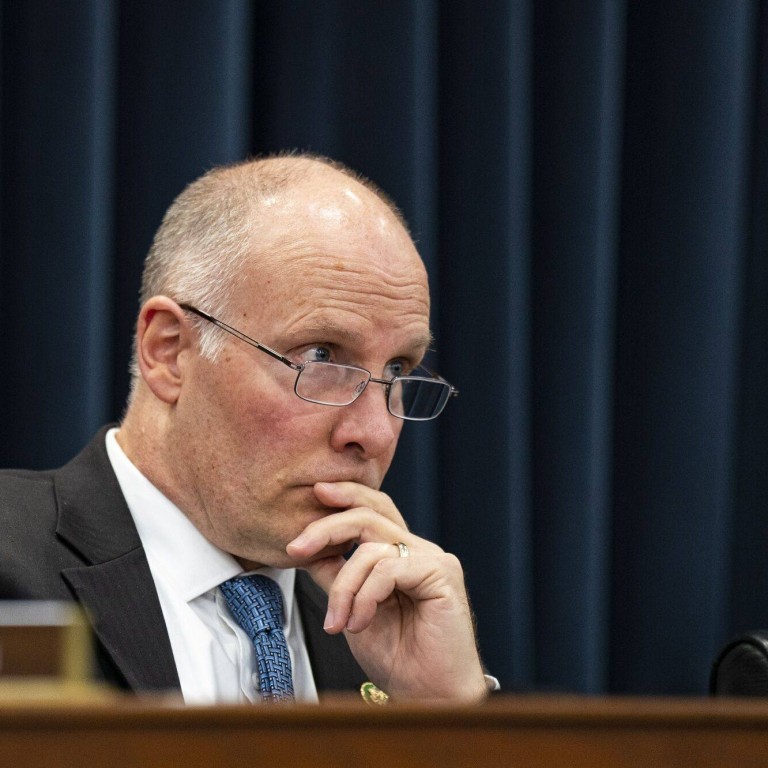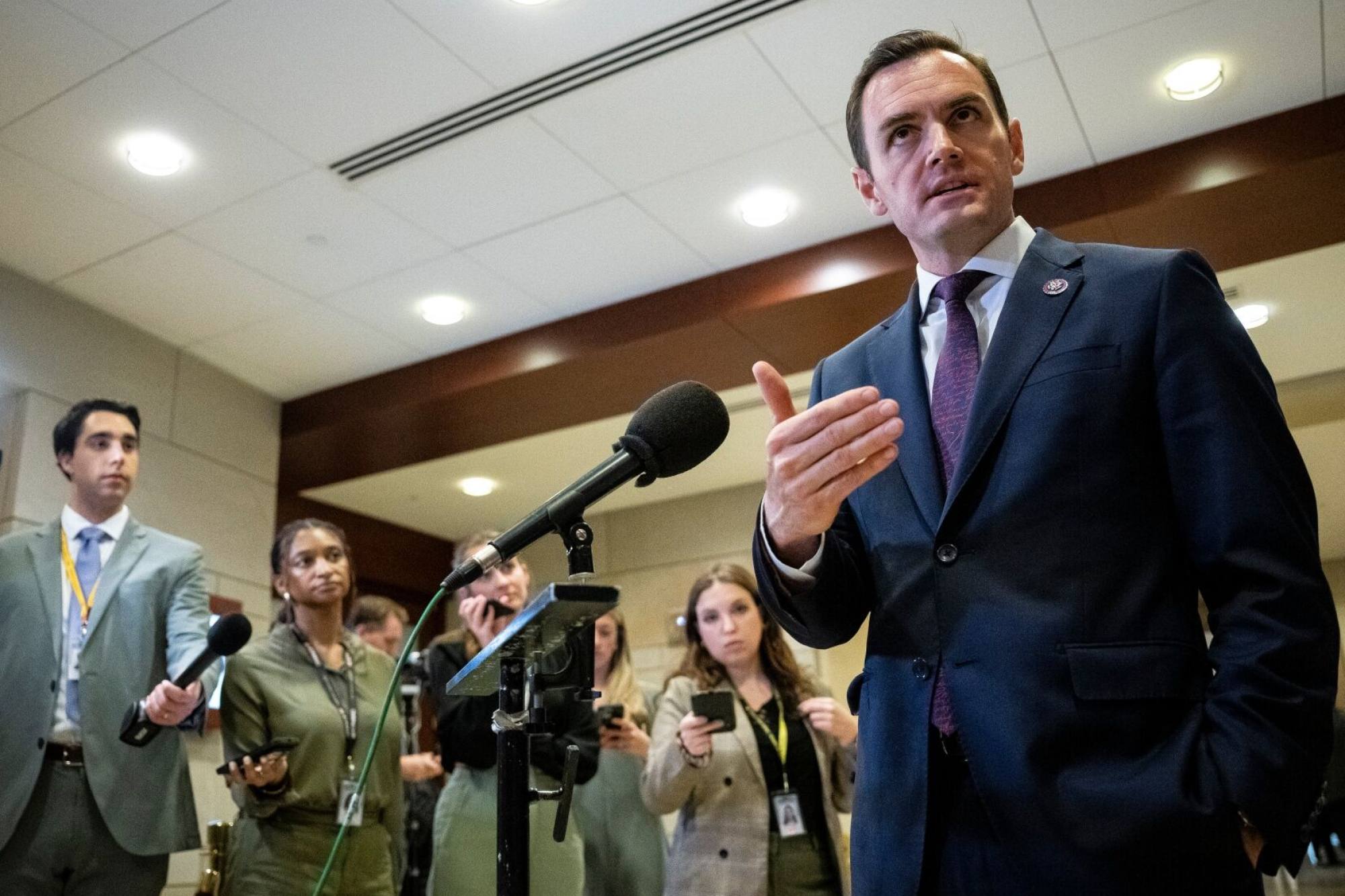
New chairman is named for US House select committee on China
- House Speaker Mike Johnson chooses Representative John Moolenaar of Michigan to head committee after its chair, Mike Gallagher, say he will leave Congress on April 19
- Moolenaar, a five-term representative, has sponsored a bill to deny certain green energy tax benefits to companies connected to China and other ‘countries of concern’
The US House Select Committee on Strategic Competition between the United States and the Chinese Communist Party has a new leader: Representative John Moolenaar of Michigan.
Moolenaar, 62, is slated to serve at least until the end of the current congressional term on January 3, 2025. The select committee, which was established last year to develop a more comprehensive congressional strategy on China policy, would need to be reauthorised by the new Congress after the November elections.
In a statement, Moolenaar said he looked forward to working with Democrats and standing committees to “help our country prepare for the challenges we face from the Chinese Communist Party and win the competition against the CCP”.

In February 2023, Moolenaar wrote to Treasury Secretary Janet Yellen requesting that the Committee on Foreign Investment in the United States – an inter-agency body led by Treasury that scrutinises national security implications of cross-border deals – review large investments made in Michigan by Chinese companies and their subsidiaries.
Embattled Chinese battery maker Gotion vows ‘more vocal’ US tack after lawsuit
In subsequent months, Gotion said it had voluntarily submitted documents for CFIUS review but that the committee found Gotion’s purchases ineligible for review.
The Michigan Republican is also the sponsor of a bill requiring CFIUS to review “greenfield” investments made by the Chinese government.
Neither bills have advanced to committee, both garnering only Republican cosponsors.
Moolenaar also sits on the powerful House Committee on Appropriations, which is charge of the process by which Congress allocates money to government programmes. On that committee, he is part of the subcommittees overseeing agriculture and labour and health programmes.

Last June, Moolenaar was part of a bipartisan group of lawmakers who visited Ford Motor, General Motors and other auto suppliers in his home state, with the stated aim of learning how Congress could help the auto industry reduce its reliance on Chinese supply chains.
In February, Moolenaar was part of a bipartisan delegation to Taiwan led by Gallagher.
In a statement, Gallagher said that Moolenaar “understands the grave military, economic, and ideological threat posed by the CCP and will continue to advance an agenda that will best position our country to fight and win the strategic competition between the United States and our nation’s foremost adversary, the Chinese Communist Party”.

